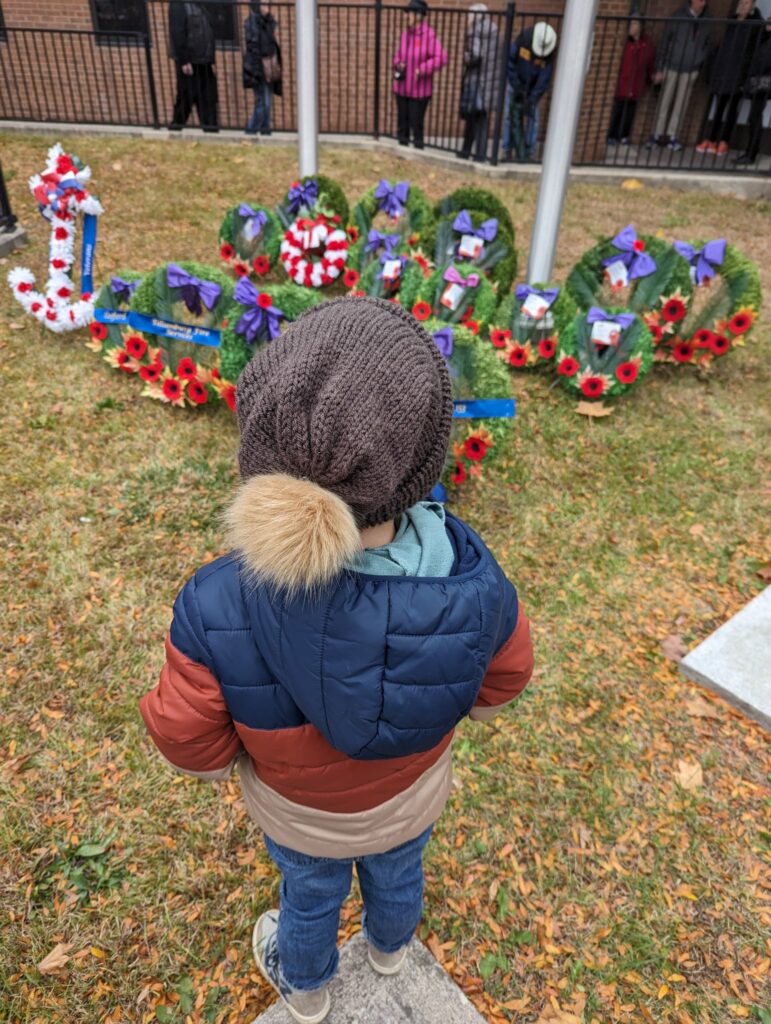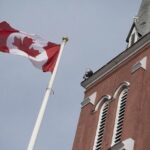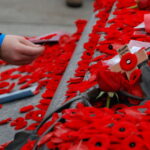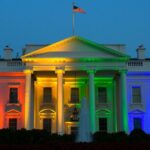Canadian Politics
Canada’s Christian heritage was stronger than anti-prayer directives this Remembrance Day
This morning, my family attended the Remembrance Day ceremony at the cenotaph in the small town of Tillsonburg. I find that the older I get, the more moved I am by it all—the Last Post, the anthems, the flags at half-mast, the shrinking handful of veterans who brave the November chill to salute their fallen comrades, the lines from Laurence Binyon’s 1914 poem “For the Fallen”:
They shall grow not old, as we that are left grow old:
Age shall not weary them, nor the years condemn.
At the going down of the sun and in the morning
We will remember them.
My first memories of Remembrance Day are attending with my grandparents—all of whom were liberated by the Canadians in the Netherlands. Last year my daughter had the opportunity to meet a veteran who had fought in the Netherlands in World War II and thank him. This year, the chaplain shared that his father-in-law had fought in Holland, as well. Remembrance Day is personal for my family, and I consider it to be the most important non-religious holiday of the year.
This year, there was a directive from the Canadian Armed Forces—for the second year in a row—that ceremonies across the country must remain secular. It is an attempt to erase the foundational values of Canada’s heritage—ludicrous when one considers the fact that most cenotaphs contain religious symbolism, and many take the form of crosses. The graveyards of the fallen—I have visited cemeteries from Gallipoli to Arnhem—are also filled with ranks of crosses, row on row, marking the monumental sacrifice of a Christian civilization.
I don’t know what took place at other cenotaphs across Canada, but in Tillsonburg, the directive was ignored. The ceremony began with a recitation of “The Soldier’s Psalm,” Psalm 91:
He that dwelleth in the secret place of the most High shall abide under the shadow of the Almighty. I will say of the Lord, He is my refuge and my fortress: my God; in him will I trust. Surely he shall deliver thee from the snare of the fowler, and from the noisome pestilence. He shall cover thee with his feathers, and under his wings shalt thou trust: his truth shall be thy shield and buckler. Thou shalt not be afraid for the terror by night; nor for the arrow that flieth by day; Nor for the pestilence that walketh in darkness; nor for the destruction that wasteth at noonday. A thousand shall fall at thy side, and ten thousand at thy right hand; but it shall not come nigh thee.
The recitation was followed with the singing of “O God, Our Help in Ages Past,” the hymn played by the BBC when World War II was declared, and at Winston Churchill’s funeral in 1965. A chaplain offered prayers which unapologetically commended Christ as the way of salvation and prayed for the eternal welfare of all those present. The hundreds present removed their hats and bowed their heads. Some prayed along; there was a scattering of “amens.” The ceremony closed with “God Save the King” and a Christian benediction.
As one Canadian Armed Forces member told LSN in an email recently: “[T]his constant desire to erase God from our culture is highly ideological. Canadians don’t support this. Veterans don’t support this. And we all saw what happens south of the border when the government is out of touch with the traditions and values of its own people. We’re talking about such core traditional values that have kept our society cohesive and functional and flourishing for hundreds and thousands of years.” He is correct—and in Tillsonburg today, we remembered that, too.
In an increasingly secular country governed by a man who stated that Canada has “no core identity” and is the first “post-national state” in the West, Remembrance Day is a stern rebuke. Canada has a heritage, and did have an identity—and that identity was Christian. During World War II, thousands of people packed the streets of Calgary and across the country to pray for the soldiers surging up the beaches on D-Day. Our leaders acknowledged the necessity of God’s help. And on November 11 each year, despite directives from our leaders, Canadians gather and, for just a moment, remember who we were.









Heartfelt gratitude for the service of our past and present military. The ultimate sacrifice and bravery. Prayer, scripture reading and christian hymns prevailed at the service I attended. We know our faith roots and God was welcomed.